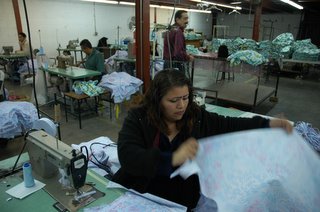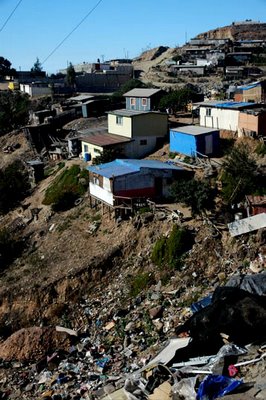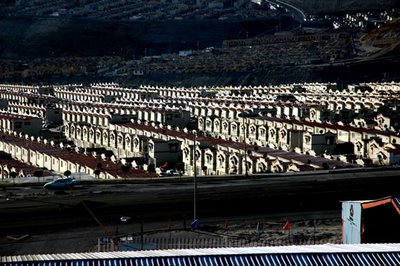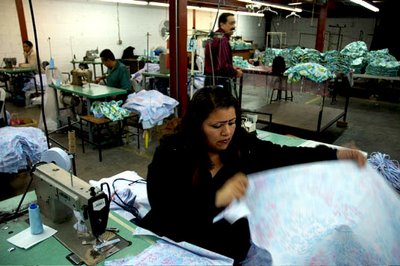Disney will begin marketing a nationwide wireless phone service that will enable parents to manage their children's cell phone use. Be very afraid, especially if you have a child, are a child. Be even more afraid if your child is female.
Although Disney markets itself as a trustworthy company that provides innocent, family-friendly products, in truth the Disney Corporation seeks neither to promote "family values" nor to adhere to them. It seeks to make money by the most efficient means possible.
Since its inception, Disney has been a "pioneer" in animated film because it brought the assembly line to animation production. In so doing, it has consistently sought to crush unions, or severely limit them. How else do you think they earned 32 billion dollars last year? This lack of scruples has made them one of the largest owners of media in the world, fighting every battle to keep control over copyrights and extending patents into the indefinite future. We could also mention Walt Disney's sexism and his love of Hitler serious flirtations with fascism, but that is for another time...
"Yes, but I like Disney movies. They're safe and non-threatening" you say. Well, unfortunately, Disney movies are anything but. Remember, Disney is a corporation with the power to make any film it wants, yet it continues to make films like the Little Mermaid and Beauty and the Beast in which female heroines are in one way or another deprived of a voice. "But Belle was smart and read a lot," you say. She may have been, but that did not stop her from being captured, forced to put up with a violent male, and ultimately find "happiness" being married to him. The subtle message is "if you are nice to a mean man, he will eventually be nice to you." If you don't believe me, listen to children say it on Mickey Mouse Monopoly.You will see that little girls learn that being nice and subservient is the way to keep a man. It's probably a great way to learn how to stay in an abusive relationship too, but is that what you want your children to do?
You want to know more? Go read about Dumbo, Song of the South, Jungle Book, Aladdin and more.
Speaking of depriving females of a voice and objectifying them at a young age, did you hear about the guy in Homeland Security who was trying to find an opportunity to sexually assault a minor? Well, Disney is a major player in an entertainment industry that sexualizes young chilldren. Here is a good example. It's a photo I took at Disneyland last year.
Notice where the image leads your eyes. How is that for innocent? Think about this. Disney plans their marketing meticulously and they choose to portray women and children in derogatory ways.
The sexualization of young females is bad enough, but it also leads to their objectification and thus exploitation by men like Doyle. I suppose it also leads to men like Lewis Libby, who says, in The Apprentice: "At age ten the madam put the child in a cage with a bear trained to couple with young girls so the girls would be frigid and not fall in love with their patrons. They fed her through the bars and aroused the bear with a stick when it seemed to lose interest." What is in your popcorn?


Those are Republican family values for you, and these are corporate values that sell.
But let's get back to Disney.
What embodies the transition to innocent whore better than the mouseketeers? Nothing. Let's take a look at one of the most famous graduates from the mouseketeers, Britney Spears:

Note the childlike pose, but the woman-like attitude "Do it one more time." A rather provocative juxtaposition if there ever was one.
Is it any surprise that she also sings "Slave 4 U":

What is important here is that Brittney is not only a Disney product, but a product of Disney.
Disney is interested in capturing a youth audience that spends billions and Britney is the perfect example of a transitional product--transitional in the sense that young girls, whose parents had been making purchases for them, will be attracted to the (pseudo)"independence" of a Britney and want to emulate her and buy her products as they move from dependent child to "independent" teen. The downside is that they learn to be "slaves" and sexual objects in the process. Thus, independence is only perceptual because they are learning subservience to men, and to the corporation. Disney could change this, but easy profits seem to dictate otherwise.
Disney has the power to change its theme parks too. But it doesn't. Here is a picture from the jungle safari.
If you are a minority, you probably know exactly what this means. What you see here is not a funny representation of history, however, but a reinforcement of social hierarchy that some people happen find funny. The black men are portrayed as scared and are made to look stupid. The while male is scared too--but who do you think most visitors to Disney laugh at, the white man or the black men? Racism is pervasive in their films too (Jungle Story, Song of the South, Lady and the Tramp, etc.), but I won't go into that here.
Beyond the cultural cues Disney instills in young people, there are other reasons not to trust Disney. According to Information Week,
"Parent-friendly features in Disney Mobile include being able to set spending allowances and track usage for voice minutes, text messaging, picture messaging and downloadable content...In addition, parents can decide on the hours of the day and days of the week kids can use their phones, program restricted and always-on phone numbers, prioritize family messages and locate kids' phones through their global positioning systems. The controls will be accessible via the Disney Mobile website.
Disney has already violated the right to on-line privacy for children. By signing up for the phone service, my guess is that you will also sign away many rights to information about your child. You will also be subjecting them to the Disney advertising machine every time they open up their phone. Let me repeat: Disney is neither harmless nor innocent. Every time you go online to Disney to control your child's phone access, you are inadvertently giving information about your own morals and ideas, and an insight into your child's. Do you think Disney will use this information to protect your child, or do you think they will use it to find even more subtle ways to communicate to them? I would err on the side of caution and suspect the latter.
In a word, by avoiding a Disney cell phone service, you will avoid having to compete with Disney for parenting rights for your child. Indeed, one of the fundamental ideas of freedom is not only the freedom to do something, it is the freedom to be free from something. Unfortunately, in a world where the average child sees 40000 advertisements per year, it is now a luxury to be free from advertisement. There is "no space," as Naomi Klein says, children need a place where they can simply be without being forced to see themselves through the lens of advertisement and commodities. Henry Giroux states it well:
Intent on defining itself as a purveyor of ideas rather than commodities, Disney is aggressively developing its image as a public service industry. For example, in what can be seen as an extraordinary venture, Disney plans to construct in the next few years a prototype school that one of its brochures proclaims will "serve as a model for education into the next century." The school will be part of 5,000 acre residential development, which according to Disney executives, will be designed after "the main streets of small-town America and reminiscent of Norman Rockwell images."[H. Giroux]
It is important for parents to understand, as Disney does, that in today's economy ideas are a commodity, and perhaps we should not buy them all, for they can be deleterious to the family. Indeed, when Americans think that to be a good parent they need to conform to the ideas Disney presents, then it is time to ask questions. Why should Disney be an intermediary between ourselves and our parenting goals? Why should I give important information about me and/or my children to Disney who will then have the power to use it in advertising research? Why should I trust a company that portrays young women as subservient, sexualized and objectified beings? Why should I subject myself or my child to more advertisements? Why should I buy a phone from Disney when many of the features offered are offered by other providers, just in a different package? Ask yourself these questions.
If all my shouting and preaching hasn't convinced you yet, then I have just one more picture of Disney's philosophy, the one they want to instill in you anyway. You can find it on the trash cans at Disneyland:
[Note: Updated and edited for spelling, formatting and clarity.]




 courtesy AP Photos
courtesy AP Photos Photos by me.
Photos by me.

































